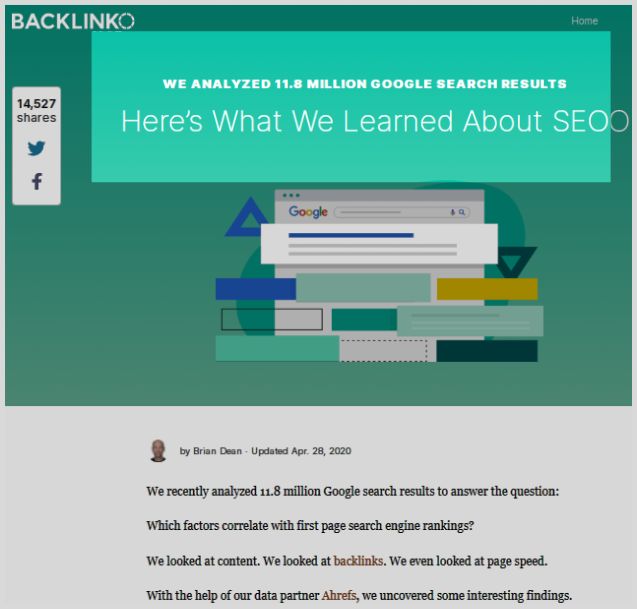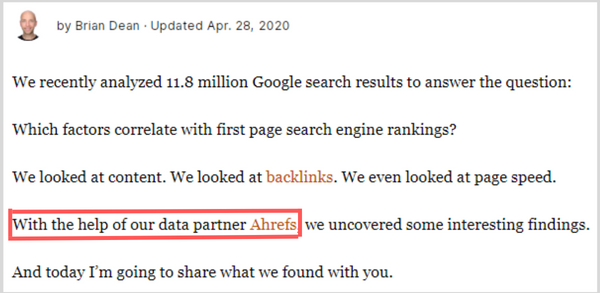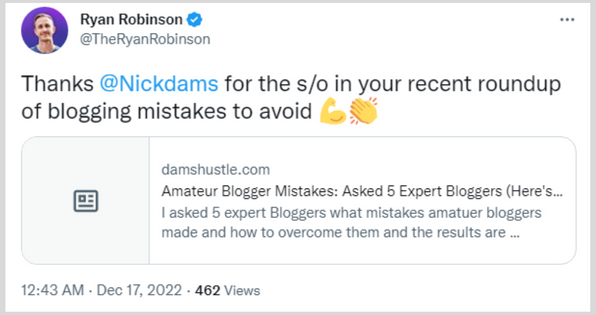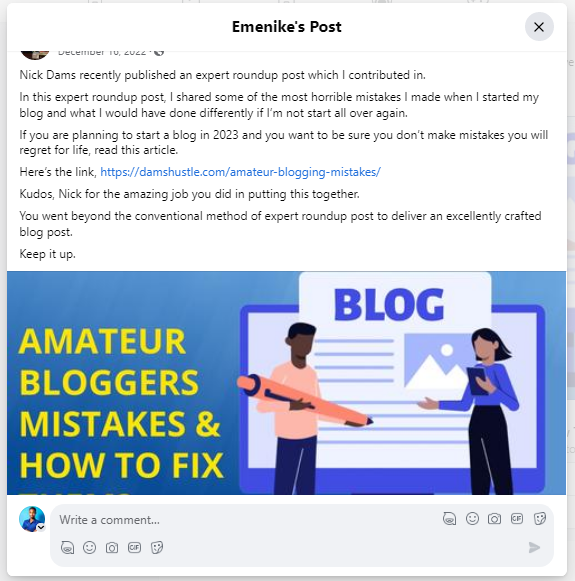In today’s digital era, a blog has become a go-to source for information discussed under the sun (from health, fitness, technologies, etc).
We can get unlimited access to the vast majority of information, including blogs, on virtually any topic on the internet.
That is because, anytime you want to search for a piece of information, you go to Google.
And Google recommends other blogs to you that can answer your questions.
And that leads us to this question.
Are Blogs Reliable Sources of Information?
Blogs can provide some valuable insights, personal opinions, and perspectives based on the author’s expertise, proof or evidence about a product or experience, and authority in a given topic but their credibility and reliability as sources in terms of academic writing usually vary.
So it is in your best interest to ensure that these blogs meet the standards required for academic writing quality
I can explain.
Blogging is an online journal and a place for sharing information that is created by these so-called individuals or a team of people who call themselves experts on a topic.
With blogging, writers can share their thoughts, and honest opinions and research anything about a topic, and when you come across this topic, you have no option but to trust most of this information online because you do not have the resource and time to be able to detect if this information is factually correct or if the research work is actually true.
And these blog writers or authors may not always have the necessary expertise or qualifications to provide accurate and reliable information.
Most of these writers usually have a fake persona online because blogging does not always adhere to the same standards of credibility, accuracy, and reliability, unlike the traditional forms of media outlets.
Due to that, anyone with a domain and hosting can start publishing content, which is what most bloggers do.
This can further erode trust in the reliability of online blogs as a source of information.
In fact, most bloggers go extreme miles to publish unfactual information (fake news) in the name of getting an audience or making money out of it making them unreliable sources of information.
With all these standards, are blogs to be trusted? well yes In most cases and I will tell you why?
One of the key important factors you should always look out for when evaluating the authenticity of a blog post is usually the blog author’s credentials in a specific topic.
And it all boils down to the kind of blogs you digest information from.
Most blogs only allow authored experts who possess extensive knowledge, experience and recognized credentials on a specific topic.
So whenever you come across a post from this blog, then you know their information is legit.
Backlinko blog is an example of this approach.
He published a giant blog post on how he analyzed 11.8 million Google search results to be able to detect the most important Google ranking factors.

Backlinko is a popular SEO blog that provides actionable tips to help newbies and most professional bloggers grow their blog traffic through effective SEO strategies, owned by brian dean with the help of a small team of people.
However, some may question the authenticity of these posts due to limited resources for analyzing a large number of results.
Nevertheless, it is worth noting that Backlinko mentioned he partnered with Ahrefs, a reputable SEO tool, lending credibility to their insights and analysis.

Who is ahrefs by the way?
Ahrefs is a saas tool for empowering SEO and Bloggers with Data-Driven Insights that can help them rank on Google and grow their blog traffic.
With its extensive database and efficient web crawling capabilities, Ahrefs has become one of the most reliable SEO tools in the industry, also making them the second most active web crawler after Google
Ahrefs’ success can be attributed to its comprehensive database, which contains a vast amount of data on websites, backlinks, keywords, and more.
This extensive database allows Ahrefs to provide accurate and up-to-date information to users, helping them make informed decisions in their SEO and content marketing strategies.
The data provided by Ahrefs empowers SEO professionals and bloggers with insights into their website’s performance, competitor analysis, and opportunities for growth.
But that is not our problem.
The point is Backlinko’s research study gains credibility as Ahrefs joins hands with them.
The partnership indicates that there are ample resources to conduct a thorough analysis, proving a form of legitimacy.
So does that mean any blog I come across must partner with other brands to prove some form of legitimacy? No
There are other ways information on blogs can be authentic without having to go through this route.
How Do You Know If a Source Is Credible?
When evaluating the credibility of a blog as a source of information, it is in your best interest to consider the following factors:
The Author’s Credentials:
Before you try to digest any vital information from a blog, you should always check the author behind that post, and their credentials as well.
Does the author have experience on that topic?

What success rate does he have on that subject of an area of expertise?
Evidence-based information:
When reading online articles or information that require a practical application, it is important to look for evidence or proof to ensure reliability, credibility, and authentication of such information, such as in the case of backlinko blogs.

You need to put an eye on that and also note that Reliable blogs will always link to reputable sources, such as peer-reviewed journals, government agencies, or established news organizations, to back up their statements.

For instance.
I published a blog post on reasons why blogger fails.

I realized my own qualifications weren’t enough to create content solely based on my experience.
So I interviewed 5 successful bloggers, which led to a successful post that was shared by credible sources on Twitter.

And Facebook as well.

How Often Do They Update Their Post:
The relevance and reliability of blog posts can be affected by their date of publication and frequency of updates.
As research-based (original research articles) can go outdated over time, it’s important to know how often blog editors update their posts.
Checking the published date of the article and considering the passage of time is crucial in assessing the currency and accuracy of the information provided.
Regular updates indicate a commitment to maintaining the accuracy and relevance of the content, enhancing the reliability of the blog as a trusted source of information.
Do they Allow Expert Authors On Their Post:
Reliable blogs often allow expert authors who specialize in a particular field or have firsthand experience.
For instance, if a successful YouTuber finds success on TikTok, it makes them qualified to write a post on it.
However, if they don’t, a reputable blog may allow a guest author with expertise in that field to contribute and ensure they produce the best information.out there
This practice signifies the blog’s commitment to providing reliable and credible information to its readers.
Wrapping It Up
For a blog to be considered a reliable source of information, it must be authored by industry experts in their area of specialization, with proper citations and references.
Author credentials and experience play a crucial role in establishing trustworthiness.
